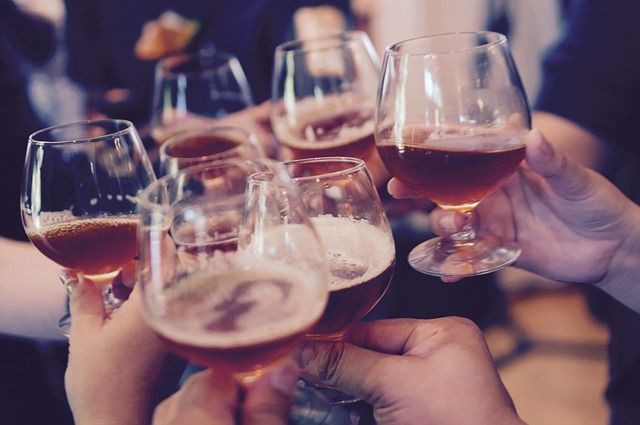Does Marriage Make You Drink Alcohol? New Study Has Good News For Couples

Does your relationship status affect your drinking habits? New research from the University of Virginia suggests the two are more closely related than you might think. According to the study, couples who are married or living together tend to drink less alcohol less frequently than their single counterparts. However, once you leave this relationship, whether through death or divorce, drinking habits may skyrocket.
People who are married, or cohabitating, generally tend to drink fewer alcoholic drinks and less frequently. On the other hand, singles seem to be more inclined to drink more often, and in larger quantities. In addition, cohabiting non-married couples generally drink more often than married men and women, but less often than single, widowed, or divorced individuals.
What’s more, cohabiting men drink fewer alcoholic beverages per occasion than married men, but quantity-wise, cohabitating women drink about the same in one sitting as their married counterparts. Unfortunately, this protection from overindulgence doesn't last forever; the study concluded that once the relationship was over, people are likely to drink more heavily in a single setting, but they don’t necessarily drink more often.
"Our data revealed an interesting pattern where, once you're in a committed relationship, your drinking frequency declines permanently, whereas quantity goes back up if you exit that relationship,” explained lead researcher Dr. Diana Dinescu in a recent statement.
The results are based on the behaviors of 2,425 same-sex twin pairs (1,618 female pairs and 807 male pairs) who had participated in the Washington State Twin Registry. According to Dinescu, this helped to eliminate genetic and family-based factors that could offer alternative explanations for an individual's drinking habits, and brought us a “step closer to understanding the true impact of relationships on drinking behavior."
These findings help to back previous research which suggested that marriage could act as a buffer and protect some individuals from alcoholism. For example, a study from earlier this year found that marriage can lead to safer drinking habits, similar to the protective effect the 12-step program and sponsors have on people in Alcoholics Anonymous.
Source: Dinescu D, Turkheimer E, Beam CR, Horn EE, Duncan G, Emery RE. Is Marriage a Buzzkill? A Twin Study of Marital Status and Alcohol Consumption. Journal of Family Psychology . 2016
Read More:
Getting Married Lowers Your Risk Of Being An Alcoholic, But Only If Your Find The Right Partner: Read Here
Partners’ Drinking Habits Influence Marriage Satisfaction: Read Here



























